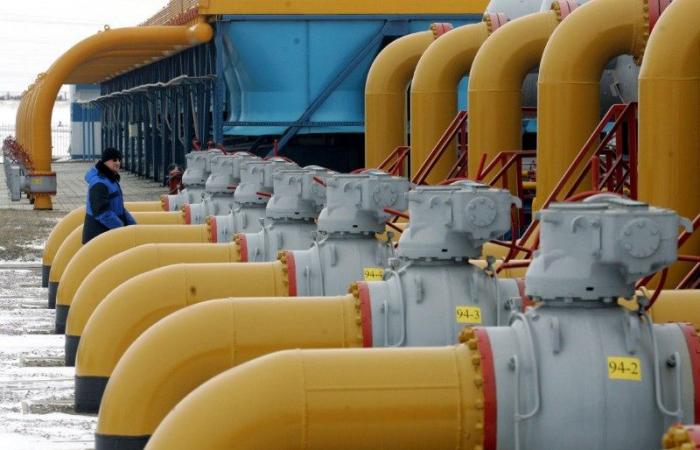Gas flows in Central Europe have adapted to the cessation of Russian deliveries via Ukraine on January 1, with increased deliveries to the region from Germany and Italy making up for the shortfall, as showed data from network operators on Monday.
Austria received gas through Slovakia until the end of the year, after its contractual supplies from Russian gas giant Gazprom ended in November.
Austrian Grid Management said in a daily report on Monday that the country increased its imports from Germany and Italy when flows from Slovakia were cut off following the expiration of a transit agreement between Russia and Ukraine which kyiv refused to extend.
Gas has also stopped flowing through Slovakia and to the Czech Republic, while Slovakia has relied on a connection with Hungary as its only import source since the start of the year.
Gazprom’s deliveries for Slovakia’s own consumption under a long-term contract with the main Slovak supplier SPP, which covers around two-thirds of the Slovak market, also stopped when transit through Ukraine ended. ended.
Data from Slovak gas transmission network operator Eustream showed that nominations for daily flows to Slovakia from Hungary were 87 gigawatt hours (GWh) for Monday, the highest level since the start of the month of January.
This figure is below the record level of 100 GWh reached at the end of 2024, but the absence of exports to Austria and the Czech Republic shows that volumes remain in Slovakia.
SPP said the Hungarian route, used to transport gas from Russia via the TurkStream pipeline, was an important alternative in the absence of flows to Ukraine.
However, she clarified that her preference would go to Germany, then the Czech Republic or Austria. Network data showed that this route has not been used until now.
The company did not respond to requests for comment Monday.
The Czech Republic, whose importers do not have direct contracts with Gazprom, has resumed taking gas from the German network.
The Czechs almost completely stopped using Russian gas in 2023, but imports from the east increased in 2024, which market participants attributed to a German transit tax that drove up costs shipping from the West.
This tax has been removed for transit since January 1, making it easier to switch to Western supplies.
Data from transmission system operator NET4GAS showed nominations for 177 gigawatt hours of gas from Germany to the Czech Republic on Monday, and no gas left the country.






